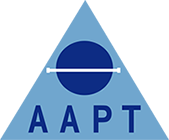News
New Careers Advice from AAPT
Anatomical Pathology Technologists (APTs) carry out a range of tasks related to many different aspects of mortuary work.
One of the primary tasks is to assist and support Pathologists during post mortem examinations and reconstruction of the deceased afterwards. Anatomical Pathology Technologists can be based in an NHS Hospital Mortuary or a Local Authority Public Mortuary.
The AAPT recommend that a anyone seeking employment as an anatomical pathology technologist obtains at least 5 passes at G.C.S.E (or Scottish equivalent) level grade A-C, to include English, Maths and a Science (preferably Biology). Good interpersonal skills and the ability to work as part of a team, or using your own initiative are important.
The starting salary is around £15,000 and jobs are advertised either in the local or national press, NHS Careers or vacancies. There is no discrimination against sex, height or weight. It is recommended that if wishing to pursue a career as an APT you should sign up to NHS jobs and also directly contact local hospitals and public mortuaries to ascertain if there are any trainee vacancies. The AAPT website also has a Vacancies section where trainee jobs are often posted.
As an Anatomical Pathology Technologist, the extent of involvement during the post mortem examination varies depending on experience. A trainee in anatomical pathology technology would be expected to carry out basic tasks and would learn by shadowing and observing their mentor in the workplace. Trainees will have to attend mandatory training in: manual handling, infection control and health and safety.
Trainees are expected to work towards the Level 3 Diploma in Anatomical Pathology Technology awarded by the Royal Society for Public Health (RSPH) as a minimum qualification.
Gaining the Level 3 Diploma allows entry to higher levels of training as approved by Modernising Scientific Careers. Participation in the training will involve distance learning and attending an RSPH approved training centre for the residential programme. This usually will involve several overnight trips in the course of the training.
Training is divided into Taught Units and Workplace Competency Units:
Taught Units
Human Anatomy and Physiology for Anatomical Pathology Technologists
Governance and Administration of Mortuary Practices
Health and Safety in the Mortuary
Microbiology and Infection Control for Anatomical Pathology Technologists
Principles of Effective Communication for Anatomical Pathology Technologists
Workplace Competency Units
Assist with Post Mortem Examinations
Preparation and Operation of a Mortuary
Prepare for Post Mortem Examinations
Team Working
Viewing of the Deceased
Much of the areas covered are the same as with the previous CAPT but this new qualification is Ofqual accredited (Qualifications & Credit Framework) and is much bigger, 60 credits, amounting to over 300 guided learning hours. All of the Units have to be passed, either by examination, assessment or assignment before the qualification can be awarded.
APTs can progress through the MSC approved training programme learning new techniques and skills which can lead to senior APT or mortuary management roles. This can include:
• Performing special techniques, i.e. spinal cord removal, exposure of vertebral arteries, etc
• Specialist Reconstruction of the body
• Assisting forensic pathologists with examinations on homicide victims. This is a specialist area and an APT carrying out this work must have a high level of experience in all aspects of forensic procedure in the post mortem room.
In addition to providing support during examinations, APTs are responsible for the everyday running and maintenance of the mortuary service and post mortem room. This may include involvement with sudden and/or traumatic deaths from the community, i.e., road traffic collisions, suicides or suspicious death cases. Many mortuaries also have a perinatal and paediatric service which involves dealing with baby and child death.
The deceased are placed into a controlled refrigerated chamber to reduce the rate of decomposition and throughout their time in the mortuary an APT is responsible for:
• Ensuring that accurate identification is recorded
• Liaison with a range of professional persons which may include, HM Coroner officers or Procurators Fiscal, Police, Relatives, Medical and Nursing staff and Funeral Directors, or any other person or group who requires information about the deceased.
•There may be involvement with bereaved relatives and this could include:
• Conducting viewings in mortuary quiet room/s, specifically designed for this purpose
• Providing information support in respect of documentation required such as Death Certificates, Cremation forms, etc
• Offering advice on any questions the relatives may ask regarding funeral arrangements, Medico Legal issues, etc
• Assisting and advising junior doctors in obtaining signed consent, from the family, for a post mortem examination, when there is no legal requirement.
•Administration and clerical duties are a large part also of the daily routine, so it is essential that candidates have a good knowledge of IT and experience of working with computers. Many documents are handwritten so good reading and writing skills are essential.
•Many mortuary services contribute to the training of other Health Care Professionals. Junior Doctors, Nurses, Medical Students, Paramedics, and Porter services, all receive training to make them aware of procedures and practices adopted in the mortuary environment.
•The working hours vary, but generally an APT will work a 37 to 40 hour week with additional overtime and on-call work included, depending on local service requirement.
